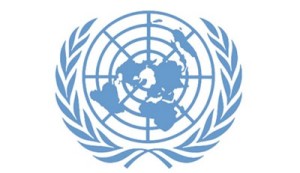 UN Cares is the United Nations system-wide workplace program created to provide support for UN staff and their families impacted by HIV. In recent years, UN Cares has expanded its focus to also address the rights of LGBTI people working within the UN system.
UN Cares is the United Nations system-wide workplace program created to provide support for UN staff and their families impacted by HIV. In recent years, UN Cares has expanded its focus to also address the rights of LGBTI people working within the UN system.
Laurie Newell, global coordinator for UN Cares at the U.N. Population Fund, says in this Development Ex article that people have come to her over the years describing the UN as a “really homophobic place to work” and asking if there was something that UN Cares could do about it. She says that one of the methods that has worked well in changing UN workplace cultures to be more welcoming for LGBTI people at the UN has been engaging the most senior leaders, because these are the people that can delivery the message with authority and emphasize what the organization expects “in terms of building an inclusive workplace of dignity, fairness and respect, including LBGTI colleagues.” She also says that, if your organization works in the area of human rights or the Sustainable Development Goals, you should “align the purpose of your initiative to the larger goal of the organization,” borrowing language from the SDGs. “We can ‘leave no one behind.” That means starting in-house with making the goals of the SDGs a reality.
The entire Development Ex article is worth your time to read.
Being gay and working in a humanitarian agency is wrought with difficulties and risks, and the biggest challenges can come from co-workers, as this Guardian piece illustrates. Sexual harassment and violence against female aid workers while on mission is widespread, but what’s under-reported is that many gay male aid workers are also targets of such, specifically because of their sexual orientation, and the majority of perpetrators of sexual violence and harassment against aid workers, including blackmail, are their own male colleagues.
International aid agencies and NGOs have mandates that include deliberately, publicly supporting human rights, equality, inclusion, protection and social justice, yet these same agencies will often ignore conditions in their own work place that make it hostile to gay staff members, justifying their lack of action as respecting religious or cultural views of anti-gay staff – something they would not tolerate were those views about a different tribe or ethnicity.
LGBT Aid Workers is a very new online platform for LGBT aid and development workers to come together, share stories and advice, and get support from each other. It’s worth checking out.
I made a personal commitment years ago to be supportive of gay co-workers in my humanitarian and development work: I will staunchly, absolutely protect their privacy, I will never, ever do anything that could “out” them (to be “out” is their choice to do or not, it is not mine), I will listen to their concerns and ask how they would like me to be an ally, particularly regarding their safety, and I will speak out with co-workers if I hear anti-gay rhetoric, reminding staff – even a supervisor – that human rights includes all humans.
Also see:
- Your organization is NOT immune to sexual harassment
- Creating a Speak-up Culture in the Workplace
- Why don’t they tell? Would they at your org?
- Fearing your own colleagues in the field
- Survey for Returned Peace Corps Volunteers Re: Safety
- Evaluation Re: Peace Corps’ Sexual Assault Risk Reduction & Response Program
- Managers of volunteers & resistance to diversity
- Keeping volunteers safe – & keeping everyone safe with volunteers
- Civil Society Capacity Building: Why?
